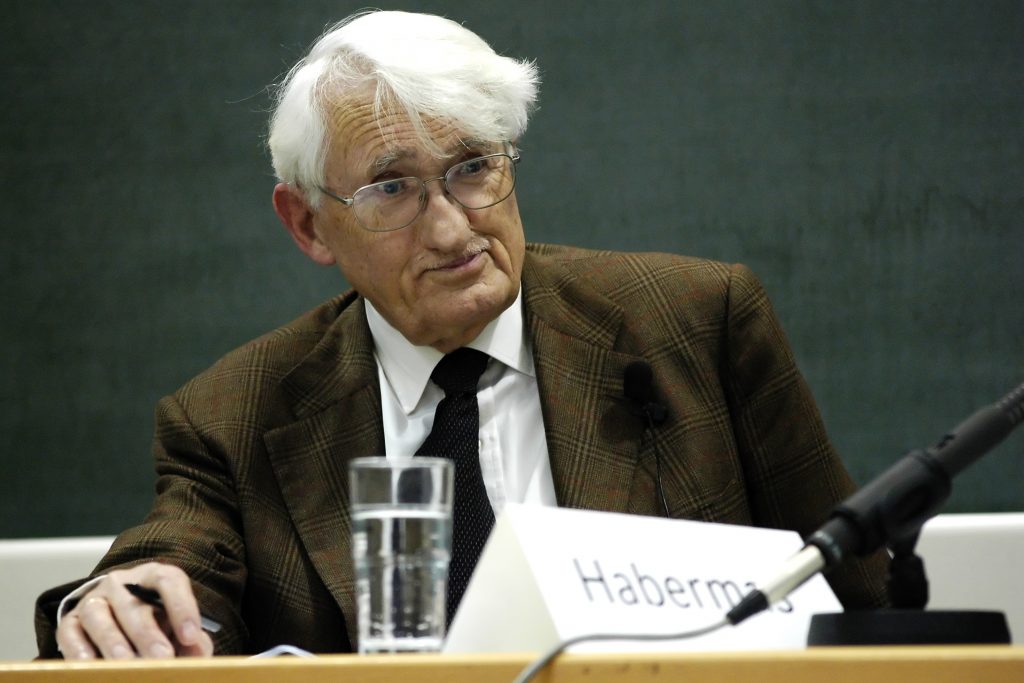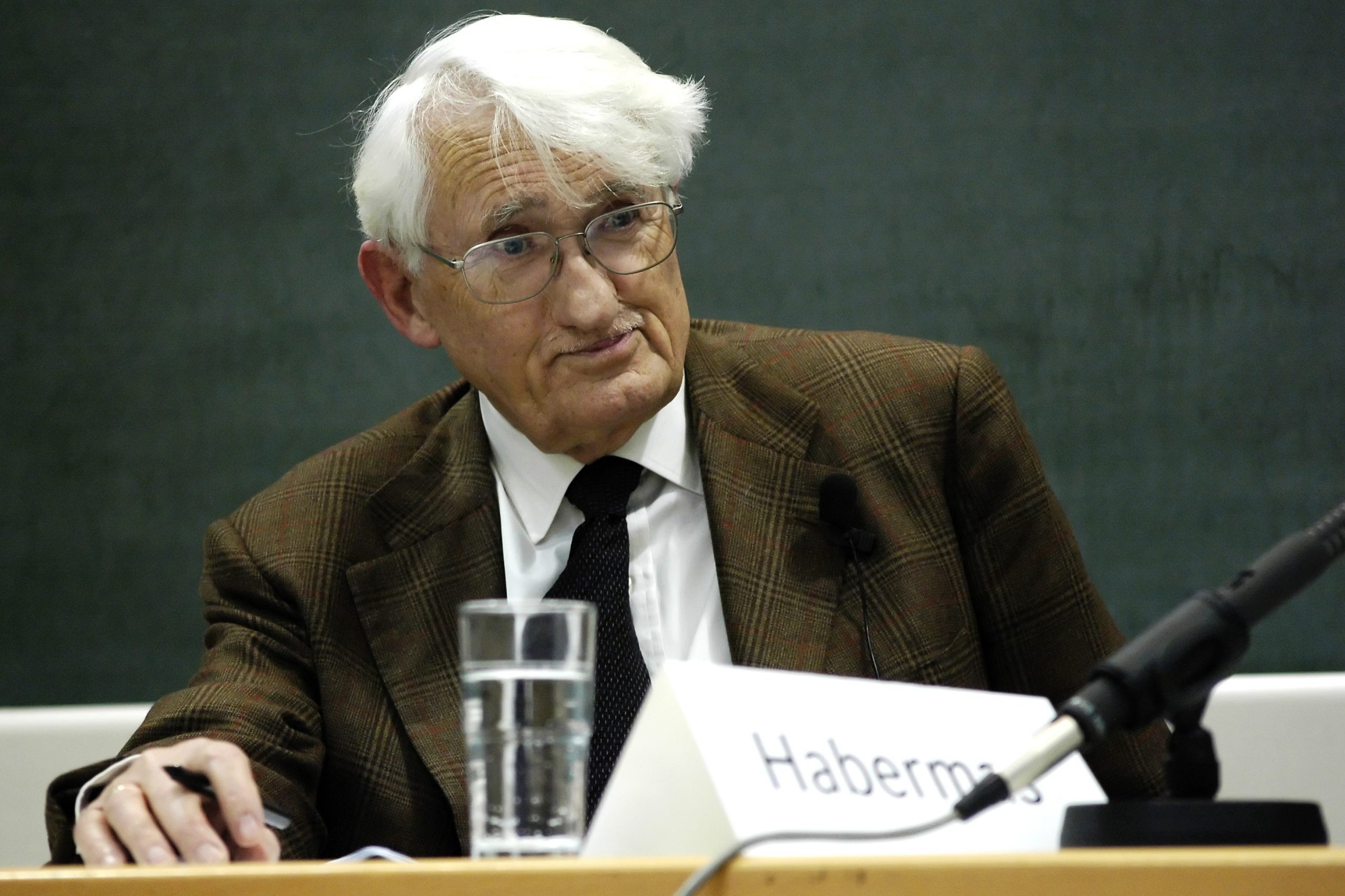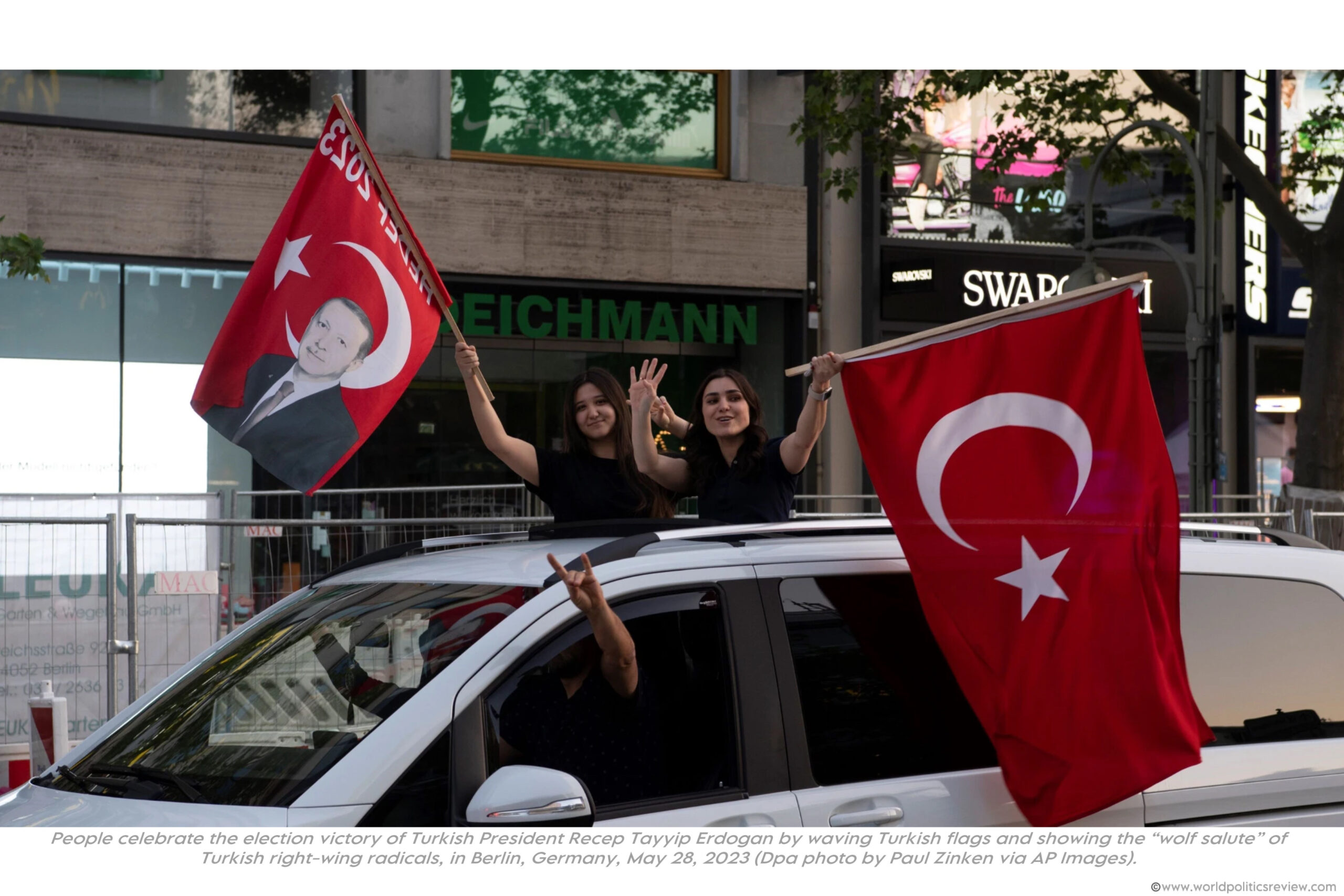At the beginning of May, Germany’s most renowned living philosopher, Jürgen Habermas, was named the recipient of the United Arab Emirates’ Sheikh Zayed Book Award, making Habermas the cultural personality of the year. After initially accepting the award, Habermas swiftly reversed his decision and ultimately rejected the honour – along with the award’s cheque for EUR 225,000.
After Der Spiegel, criticized his initial acceptance, Habermas “corrected” his stance, in the following terms: “I declared my readiness to accept this year’s Sheikh Zayed Book Award. That was a wrong decision, which I hereby rectify. The very close connection of the institution that awards these prizes in Abu Dhabi with the existing political system there is something I had not made sufficiently clear to myself” (source).

In his rejection, made public by his publisher, Suhrkamp, Habermas himself references the Spiegel article, citing its closing statement: “Usually, when spirit and power collide, power wins” (source). He goes on to elaborate that, “In the short term, yes, but in the longer term, I believe in the enlightening power of the critical word, if only it reaches the light of political publicity. My books, which have thankfully been translated into Arabic, are sufficient to achieve this” (source). Habermas is making a dual reference here to his work and to the legacy of the Enlightenment – notably, the pen being mightier than the sword – contained within it. Unsurprisingly, the Spiegel’s foreign editor, Dietmar Pieper, welcomed Habermas’ change of heart, stating that “Habermas has shown himself open to new information and arguments – something that many people find difficult. In a 91-year-old who has created a monumental life’s work, this undiminished intellectual agility seems sensational” (source).
Habermas has long been an advocate for political dialogue and justification of political position in the negotiation that is required for democracy to unfold. This negotiation takes place in what Habermas refers to as the public sphere – public, above all, because it is meant to be accessible to all, both to participate and challenge, as equals and under no compulsion, the claims that are made there. If, in other words, Habermas seeks to remain true to the contents of his philosophy, advocating freedom of expression, tolerance of criticism, and the role of discourse in the public sphere, a rejection of a prize linked to a monarchy engaged in foreign wars and accused of human rights violations (by the UN, for example – source) would seem the only viable choice.
Reinhard Schulze, head of the transdisciplinary Forum Islam and the Middle East (FINO), described Habermas’ rejection as the refusal of being instrumentalised as a source of external legitimacy by the UAE’s royal rulers : “The legitimacy of the princes thus rests on very weak shoulders, which is why they strive to compensate for the lack of an internal basis of legitimacy through increased acknowledgement from the outside” (source).
The Catholic Bishop for the Apostolic Vicariate of Southern Arabia, Paul Hinder criticized Habermas ‘s decision. Hinder called it an “insult”, citing the importance of hospitality in Arab culture. He also argued for the political necessity to engage with some leaders, even if they cannot be considered democratic, speaking of “western enlightened princes ‘who helped the Enlightenment to break through even if they were authoritarian rulers. Today Arab princes could do the same’” (source). For these reasons, according to Hinder, Habermas should have put his political reservations aside and accepted the prize.
Dr Ali bin Tamim, Secretary General of the Sheikh Zayed Book Award and Chairman of the Abu Dhabi Arabic Language Centre, said: “Rarely do we find prominent figures in the philosophical, cultural and intellectual field like Jürgen Habermas. His career has been full of accomplishments and distinguished works, which have made him the most present and influential voice in German cultural life for more than 50 years,” (source). Following Habermas’ decision, the Zayed Book Award released an official statement: “The Sheikh Zayed Book Award expresses its regret for Mr Jurgen Habermas’ decision to retract his acceptance of the award but respects it. The award embodies the values of tolerance, knowledge and creativity while building bridges between cultures, and will continue to fulfill this mission” (source).






